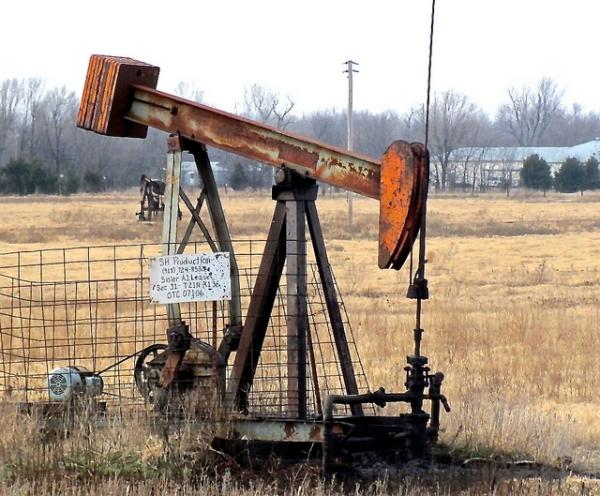
OPEC: BEGINNING TO REALIZE

As oil ministers rushed out of Opec's headquarters in Vienna late last week, the cartel's secretary-general proclaimed the group's future "to be as strong as ever".
But the expressions etched on to the faces of delegates after a tense seven-hour meeting suggested anything but and captured the disagreement between members of an organisation that controls 40 per cent of global oil production.
Venezuela's oil minister was visibly angry as he stormed out of the building. Usually talkative, the UAE's oil head shunned questions from journalists on the way to his car. Angola's representative could only muster a blank stare when asked about the outcome of the semi-annual meeting.
It was left to Bijan Zanganeh, Iran's oil minister, to succinctly sum up Friday's fractious meeting: "We didn't decide to do anything."
Although the collapse in oil prices has hit the budgets of Opec's members hard, the group's ability to act collectively has rarely looked weaker. Brent crude touched a six-year low of $41.30 a barrel on Monday.
The discord detailed by delegates inside the closed-door gathering indicates the divisions over who should bear the brunt of production cuts to lift prices are deepening. The 12-month old Saudi-led policy to keep on pumping oil was left unchanged.
"This is as clear a message as possible from Saudi to its rivals in Opec and non-Opec alike," says Yasser Elguindi, oil analyst at Medley Global Advisors.
"Under no conditions will the kingdom cut production unilaterally in an oversupplied market only for others to step in and take those volumes."
In the run-up to last week's meeting Saudi Arabia, the cartel's de facto leader and largest producer, made clear what it would take to cut production: participation from rivals Iraq and Iran, as well as countries outside the group such as Russia.
The kingdom's position has become entrenched as Iraq has raised output to record levels and as Iran prepares to raise exports once sanctions linked to its nuclear programme are lifted next year. Both countries have ruled out production cuts.
Iran's Mr Zanganeh went further, saying those countries that had accelerated output over the past year, including Saudi Arabia, should pull back to make room for its production.
After hours of debate on Friday the 13-member group could not even agree on a production ceiling and simply dropped any reference to its existing 30m barrel a day target from its official communiqué.
Although Opec has flouted its production ceiling for the past year and half, the fact the group could not agree a new target — even on paper — shows Opec has abandoned any pretence of acting as a coherent group, say analysts.
While Ali Al Naimi, the kingdom's veteran oil chief, attended an unusual pre-meeting of ministers, and murmurs from the Saudi camp suggested a willingness to hear new proposals, market observers say the moves were likely just part of the pre-meeting diplomacy.
According to a delegate, Nigeria's new oil minister and Opec president Emmanuel Kachikwu, proposed increasing the group's production ceiling to reflect its current production that it pegged at around 31.5m b/d.
But the idea was quashed by Saudi Arabia. The kingdom questioned how it was possible to set a higher target without suggesting to the market the group was ramping up production, especially given the expected rise in Iranian production next year and the readmission of Indonesia.
Saudi Arabia's concerns were quickly illustrated when a leak of the higher output ceiling discussion was reported as an actual agreement by two news agencies. The oil price quickly dropped 2 per cent to within cents of a six-year low.
Meanwhile, a desperate attempt by Venezuela to push a proposal to curb Opec's total output by 5 per cent also failed to break the kingdom's resolve. "It was a non-starter," says the Opec delegate. "They wanted to do it [cut production] from 30m b/d. It was a mockery of the first degree."
After the gathering of ministers, Mr Kachikwu stated the decision to maintain policy and remove any notion of a production target was the best outcome to monitor the market for the next six months. Production outside of the group has stalled while global oil demand has surpassed expectations, he added. By then there would also be more clarity on Iran's production.
But further disagreement came over the future of Opec's secretary-general, with the incumbent, Libyan Abdalla el Badri, widely expected to retire next year. As the group's titular leader, the secretary-general is expected to represent the interest of all members, but Saudi Arabia and Iran have been jostling to put forward their preferred candidates.
Having been reconfirmed in the post for another seven months, el Badri was left with the unenviable task of convincing the world of the group's unity.
When Mr el Badri's attempts were met with laughter by the assembled analysts and press, he was left saying they hoped low prices may force countries outside the group to join cuts next year.
"Everyone is trying to digest how to do it," Mr el Badri said. "Everyone is only starting to realise the effect of the low price."
-----
More:



